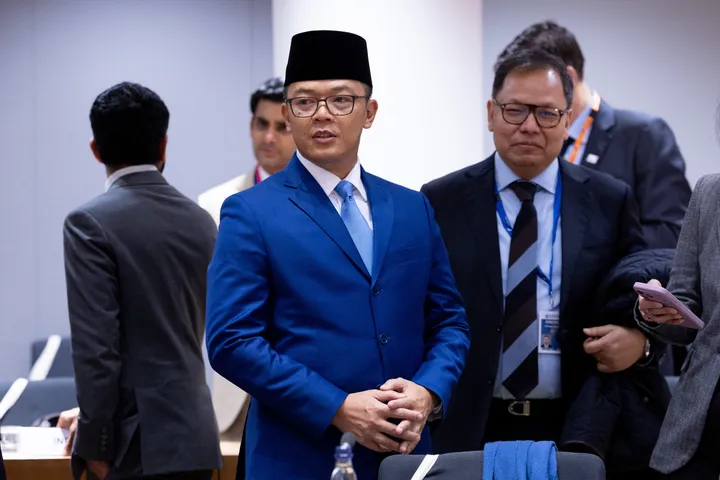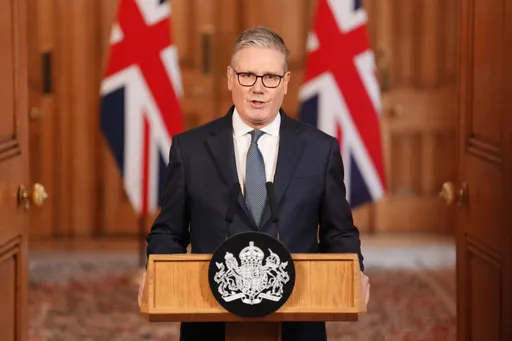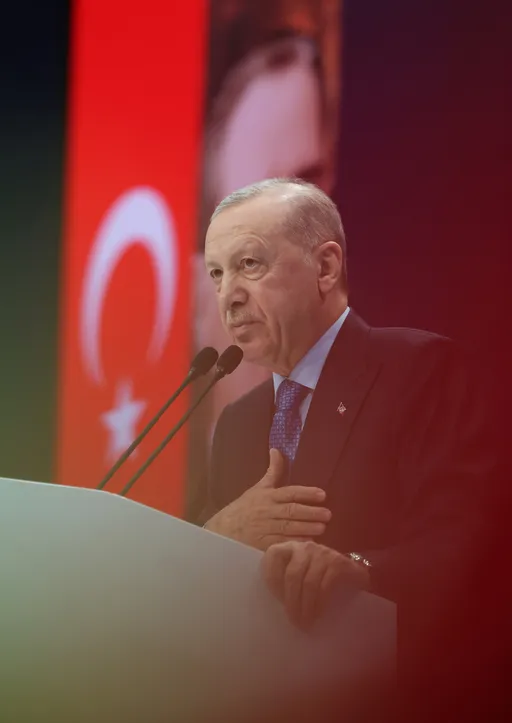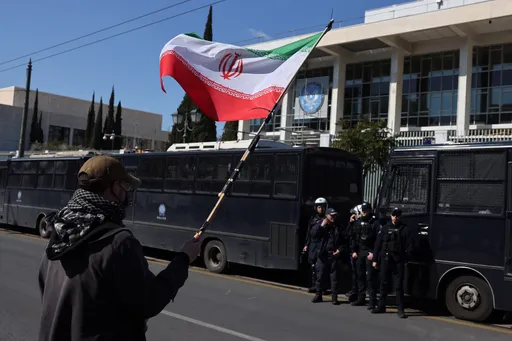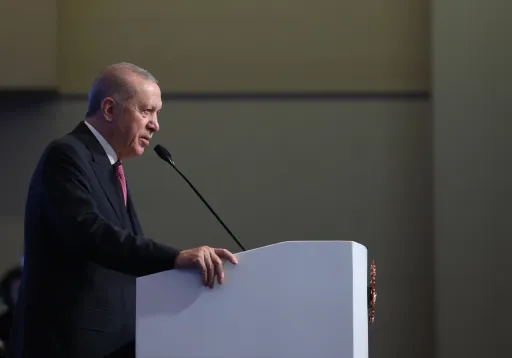I have been working for years as a journalist in conflict zones, in the Middle East and North Africa. And for years, I have been following the destiny of millions of people migrating along dangerous and deadly routes.
I saw dozens of ISIS (Daesh) fighters' corpses along the streets of Mosul, bodies of civilians visibly executed, the arms tied behind their backs and the sign of a single bullet in the head.
I saw bodies of children lying on the rubble, some with a toy next to them, a stuffed animal maybe to commemorate a body that won't have the prospect of adult life. I met mothers and fathers who saw their sons killed in front of their eyes or hung in the squares of their villages.
I have lived with proximity to death for the life and job I have chosen to do in recent years. Some of the events I've covered include the wars against Daesh, the civil conflicts in Libya, the car bombings in Kabul, the terrorist attacks in Tunisia, the coup in Cairo, the bombing raids on Gaza, and many more.
And every time I returned home, in Italy to my family and my son, I felt two things: that I was a privileged witness of the most extraordinary events in recent history, and that I was a lucky citizen of the 'protected part' of the world.
Every time I returned from a conflict area in recent years, one question stood out and among all the others: how the fear of bombs, the proximity of death and hunger, or in a word, how war can be described to those who have never lived it and don't have memories of it?
This is why I worked on language, I equipped my questions with new words, to help people in Italy in understanding something they haven't lived through — except for those who were alive during the last World War.
Sometimes I succeeded, and other times, failed.
This is why now that our life has been turned upside down by the Coronavirus, every aspect of our life has radically changed. When I hear about Coronavirus described as a war, when I read or hear such a metaphor used in the headlines of news channel and newspapers, it makes me nervous.
I think it's another way to avoid focusing on the real problem. It highlights the limits of our language in emergencies, it doesn't show us the limits and virtues of the health system of our countries and because it doesn't describe the thing that scares us most: the unpredictability of death.
Now I'm called in to describe this phenomenon that I ignored until a month ago, and that has changed my life and directly affected my family. I have the responsibility as a citizen and journalist to be lucid and rational in front of the unknown – and to communicate.
But, remember, this is not war.
When the news becomes reality
In just over a month, between February and March, I have been in Libya, in Tripoli, to cover the ongoing war and in the Greek islands of Lesbos and Samos, where 44 thousand migrants are blocked by containment policies of European countries waiting for their asylum request to be processed.
In the meantime, they live without a roof over their heads, without toilets, electricity, without enough food and of course, without doctors and access to healthcare. The scenario of contagion there is an unimaginable tragedy.
When I landed in Rome on March 9, an entire column of flights at Fiumicino airport were cancelled. Security controls more than doubled, masks and gloves everywhere.
At the time of writing, Italy has 105,792 confirmed cases with 12,428 deaths.
According to ISS data, the Higher Institute of Health, since the beginning of the epidemic, at least 4,824 health professionals have been infected with coronavirus, equal to 9 percent of the total number of people infected, a percentage more than double that of the Chinese study published on JAMA (3.8).
The Gimbe foundation, says that the data is widely underestimated and asks that the tests be extended to all doctors and health workers.
Cuba sent 52 doctors to help Italian doctors and nurses, members of the 'medical brigada' who had experience with the Ebola outbreak.
Italian Prime Minister Giuseppe Conte has issued four decrees to contain the contagion, limiting travels, imposing lockdown of entire regions and stopping the production of non-essential commodities.
Since I came back from my trip which will probably be the last for a long time, my son has stopped going to school, we queue for groceries, in front of the supermarket we will keep a distance of one meter and more, we wear gloves and masks to throw out the garbage, I must have washed my hands with disinfectant hundreds of times, and I stopped seeing my friends and colleagues.
Then, my uncle tested positive for Covid-19.
He has been in intensive care for eight days. He is seventy years old, lives with his wife - my aunt - in a small isolated village on the outskirts of Rome, one of those typical central Italian towns, made of coffee and small shops where everyone knows each other, and the local doctor knows everyone by name.
"Covid can't arrive here," everyone thought while maintaining the restrictions required by the government and by mayors.
Yet, it's here.
My uncle had a high fever for a few days. On the fifth day of fever, his doctor – alarmed and worried, but tragically unprepared for the events he was called in to handle – requested an ambulance for a suspected Covid-19 case, activating a security protocol.
This means that in the middle of the night, doctors and nurses arrive with anti-contagion personal protective equipment, and in hazmat suits.
A stretcher for a man with fever, who proudly greeted his wife and got on the vehicle whispering between a cough, "don't worry, everything will be fine."
It is 1030PM on Saturday 14 March. At 5AM, the morning after, my uncle was one of the 29 ICU patients in the Lazio region where we all live, although in different municipalities.
In a matter of hours, he tested positive and was diagnosed with coronavirus with a form of acute pneumonia and was then sedated and intubated.
Double whammy
This virus imposes proximity — for the first time in our lives, our culture and tradition — with the widespread and near unpredictability of disease and death. What's worse is it is expressed with an extreme byproduct: not being able to take care of our loved ones.
Relatives cannot see the hospitalised patient, cannot hold their hands or say "I love you".
Since that night, my aunt, my cousin and the rest of their family have been forced into isolation, but in two different homes. This means we cannot be close to my uncle or support each other. Besides, they can't call anyone for updates.
We while away the day waiting for that phone call, the daily bulletin that the doctors of the hospital with devotion and care do for the families of every coronavirus positive hospitalised.
And, for eight days, the phone call has had a single subject, a single tone, attentive but inexorable: he is stable but serious.
And there are days when we all focus on the word 'stable', then there days when we only see the darkness of the word 'serious'. We can't see him, and we can't ease the pain of waiting.
Meanwhile, on television, the news from Piacenza tells of a crematory out of control, there are a hundred coffins piled up in the 'mourning and farewell room'. Too many dead, too fast.
Since the beginning of the coronavirus outbreak, 314 people have died in Piacenza, but the crematorium at its maximum capacity can handle only 12-13 cremations per day, while 20-25 coffins arrive every day.
Since my uncle was hospitalised and his family is isolated, someone leaves them groceries outside their gates; someone throws their garbage, their time is spent in long phone calls that every day discuss the same thing.
"How are you, do you have symptoms?" I ask my aunt and cousin to be sure they have not been infected.
Relatives of a positive patient are isolated, but not tested until they are symptomatic. It's the Covid-Catch 22 - in home quarantine with a relative in intensive care, but without being tested. That means they could be positive, but asymptomatic, like the vast majority of people who contract the virus.
"No, no symptoms," my cousin replies every day.
She works in a school with a precarious contract, and her husband works at the airport, also with an insecure contract. While they wait for news from the hospital, they also ask themselves: will we be the first economic victims of this contagion? Will we count the dead at homes and count the thousands of economic victims? Will we be among them?
The second question in our daily call is, "And your mood, today?" for which the reply comes, "Worse and worse. I can't think of not seeing him dying."
And now I go back to the wars I have been returning from for years. This is not a war; there are no two enemies fighting each other.
This emergency requires us to rethink our health system, possibly in a transnational way. To rethink our work, our lives and how we related to one another.
In less than a month in Italy, the enthusiasm for the rediscovery of community is slowly turning into social anger and delusion.
Someone shouts from the balconies to those who run in the street, some spy on who goes out and who is spending too much time on the balcony.
Someone shouts 'murderer' to those who walk, as if they were looking for the infector, someone to blame for the virus, for contagion, for fear, for a future that coloured by uncertainty.
Our relationship with control and authority is radically shifting; perhaps it will never return to what it was before.
This isolation, this social distancing is necessary for the community, to avoid the collapse of the health system, to allow scientists time to find a vaccine. And we do it, we live social distancing.
It is the challenge that we are called to overcome together.
Using the metaphor of war, of something contemporary Europe does not know and cannot evoke and recall, distracts us from the problem: are we ready to face this pandemic and ones that will inevitably come in the future?
Our challenge, the most difficult one to manage with Covid-19, is living separated from our pain.
Caging the pain of those who remain at home isolated and cannot assist their loved ones can sow the grief of the future, even the social fractures.
People today cannot rationalise the impossibility of controlling such a sudden and pervasive contagion, and they cannot even create their own identity on a pain they are forbidden to go through and process.
And that great pain remains there as dross, unconsumed, over time and through nature.

